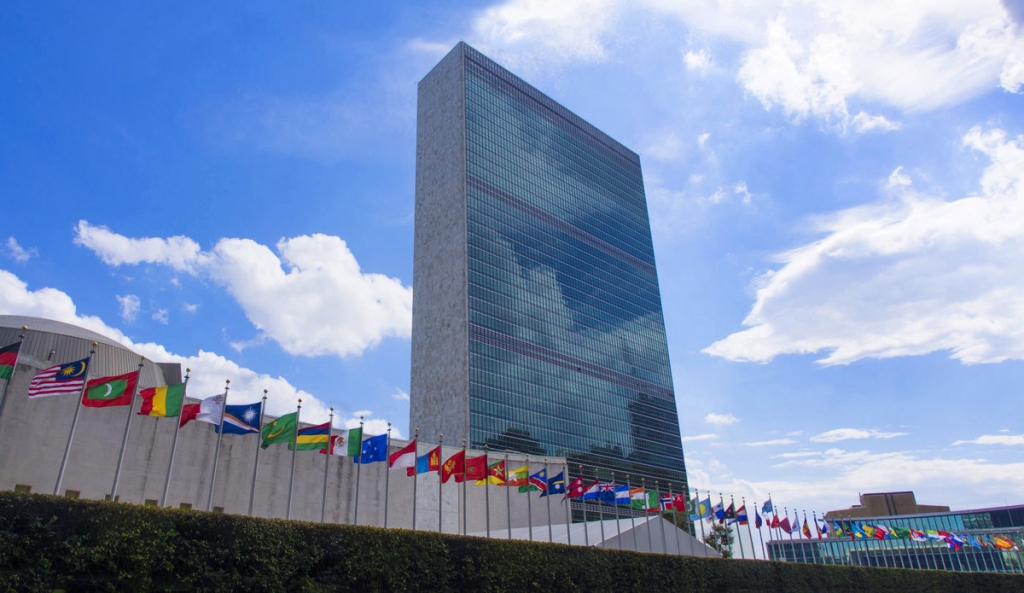Statement by Deputy Permanent Representative Anna Evstigneeva at an open VTC of UNSC members "Peace and security in Africa: addressing root causes of conflict while promoting post-pandemic recovery in Africa"
Mr. President,
We appreciate the Chinese initiative to address such a crucial issue as the root causes of conflict and post-conflict recovery in Africa. This debate would be much more practical had we met for it in person. We thank Secretary-General Antonio Guterres, Chair of the African Union Commission Moussa Faki Mahamat, and Administrator of the United Nations Development Programme Achim Steiner for their respective briefings.
The relevance of this debate finds a confirmation in the fact that the majority (up to 70 %) of Security Council’s discussions are dedicated to crises in African states, which are quite often aggravated by such threats as terrorism, organized crime, drug trafficking, illegal arms trafficking, and illegitimate exploitation of natural resources.
The Security Council holds a clearly defined mandate, envisaged by the UN Charter. Under this mandate, the Security Council must maintain the international peace and security in the situations when other tools appear ineffective.
The Council quite often receives proposals to address the interconnectedness of maintaining security, development, protection of human rights, political, economic, climatic and other factors. We assume that speculations about theoretic connectivity of processes should be left to the academic community, whereas the activity of UN bodies must focus on finding practical solutions to problems within the respective mandates.
At the same time, when promoting stabilization and looking for ways to overcome crises in acute phase, we should bear in mind the root causes of conflicts. Those are truly multifaceted, among such causes are ethnical and religious collisions, willfully drawn borders, development gap which cannot be bridged without access to technology, non-resilient state institutions and many other things. In Africa, those are largely the effects of the colonial era, which have not been overcome yet.
What’s more, colonialism assumes new forms nowadays. Apart from unscrupulous trade policies, limited access to markets and technologies, it can be characterized by active interference in the internal affairs of states. If pressure upon sovereign governments yields no result, then there are unilateral coercive measures hanging over nations’ head as the Sword of Damocles.
We are convinced that those factors were the reason why many African states dropped behind, and up until now cannot ensure prompt economic recovery and become truly self-sufficient.
Mr. President,
It is encouraging, that despite all this Africa is working its important way, being guided by the principle “African solutions – to the African problems”.
We commend the efforts of the African Union, its Peace and Security Council, the New Partnership for Africa's Development, as well as subregional organizations. The states of the continent set up ambitious goals to end all armed conflicts and implement the socio-economic Agenda-2063.
Over the recent years Africans, given relevant support of the United Nations and the global community, have worked a lot to discover and overcome instability factors. There is a useful toolkit to that end, which includes early prevention and response, preventive diplomacy and mediation, "good offices” and confidence-building measures.
Of course, the international support in mitigating conflict potential through socio-economic recovery remains in high demand. We assume that such support must proceed from national priorities.
Such work must build a sustainable and self-reliant model rather than “patch up the gaps”. It must attract new technology and expertise, boost industries and agriculture, renew key infrastructure, create jobs, sustain healthcare and promote social security. In a word – it must be about well-balanced progress at the three tracks of sustainable development: economic, social, and environmental. We cannot agree that climate change issues should be set apart from this “triad”. This kind of approach diverts us from the root causes of conflict and shifts assistance priorities.
Mr. President,
Recently, problems on the African continent (and across the globe) exacerbated immensely due to the coronavirus pandemic, which impacted developing and conflict-affected countries the most. This is why the demand to cease fire and introduce a humanitarian pause, contained in UNSC resolution 2532, is especially relevant for the continent.
When engulfed in conflict, countries cannot provide the needed medical aid to the population, recover the economy against the backdrop of restrictive measures. They need targeted and effective support of the international community.
We believe it important to show true solidarity in combating this virus and its adverse consequences everywhere, including Africa. It means we must reject approaches based on narrow interests of small groups, the so-called "vaccine nationalism”, and stop politicizing our fight against the common challenges posed by the pandemic. Instead, we must come together to use every opportunity and try every way to ensure real access to medicines against the coronavirus for the countries of the continent and promote development.
Mr. President,
Russia is active helping the African states overcome the aftereffects of the pandemic both via bilateral and multilateral channels. Almost twenty African countries have authorized the use of Russian vaccine Sputnik-V, we continue deliveries of personal protective equipment and other basic items to the states in need. Considerable volume of Russia’s humanitarian assistance and assistance for development is administered through the UN system.
As a permanent member of the Security Council, Russia contributes to the efforts of the international community, aimed at elaborating a strategic approach to maintaining peace and stability in Africa, conflict prevention and settlement. We drive the UNSC activity towards creating clear and realistic mandates for its missions and ensuring strict control of their implementation. Russian specialized institutions will continue training African military and police personnel, including peacekeepers.
We stand open for constructive and equal interaction with African countries, as well as the leading regional and sub-regional organizations. We trust that the regular high-level meeting “Russia-Africa” will add to consolidation of our traditionally friendly time-tested relations.
Thank you.
